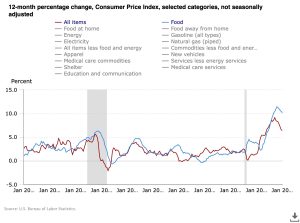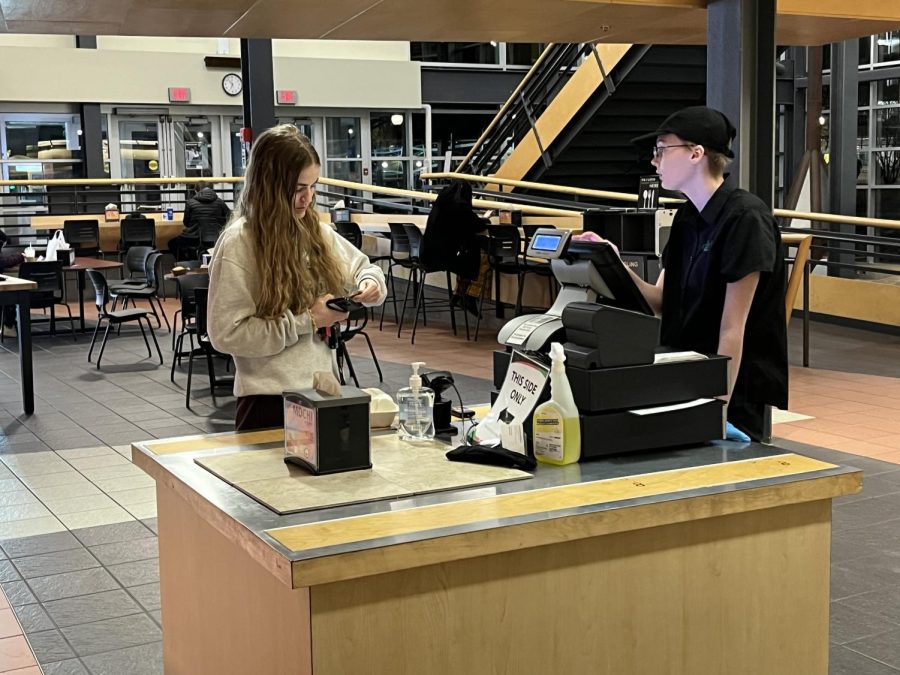Dining rates stable despite rising food costs
Anya Kelley / The Advance-Titan – Despite rising food prices due to inflation, UWO plans to keep meal plan rates stagnant.
February 22, 2023
UW Oshkosh Dining plans to keep meal plan rates the same through the next academic year despite a national increase in food prices, Assistant Director for Dining Operations Brian Warzynski said.
“University dining has no plans to make cuts to service,” Warzynski said. “We also are planning to keep meal plan rates for students the same next year, while most schools will need to increase rates.”
The price of food has gone up 10.1% in the past 12 months, a significant increase compared to historical price changes, according to the U.S. Bureau of Labor Statistics.
To adapt to the rise in food prices, colleges nationwide have had to change students’ dining plans or costs. A few schools that have done this include Ripon College, George Washington University and Buffalo State University.
Warzynski said he has never dealt with such a spike in overall food costs.
“I have never seen anything like this before,” he said. “I have seen one or two items increase for a while … This, on the other hand, has been almost every product that we purchase, and all the staples: eggs, flour, sugar, proteins.”

However, UWO’s food contractor, Aladdin Dining Services, has been able to keep the cost of meal plans down while still providing the same services as before, Warzynski said.
One way the university is combating rising food costs is minimizing food waste, he said.
“Aladdin will continue to watch their waste,” Warzynski said. “The most expensive food is the one in the garbage can.”
Aladdin strives to reduce food waste through a method called batch cooking, which involves preparing meals for multiple days and storing them, said Aladdin dietitian Carese Walczyk.
“I do know that [cooks] do batch cooking, so they’ll cook bits at a time as they go,” she said.
After that, the leftover food is composted in UWO’s biodigester, which uses the food’s methane gas to heat campus buildings.
“Leftover food we put in green bins,” Walczyk said. “We use the biodigesters so that we can use that to generate energy for the campus.”
Another way to keep dining rates down is to stabilize or increase student enrollment, Warzynski said.
The university announced budget cuts partially due to the 8% decrease in enrollment instead of the 5% decrease that was budgeted for, a bleak feat after the 40-year low retention rate in Fall 2021.
“We are hopeful enrollment will stabilize and eventually increase, which will give us significant relief budgetarily,” Warzynski said.
The overall retention rates have already started to climb back up, increasing from 81% to 87% from last year, according to UWO Provost John Koker.
While Aladdin will continue to reduce food waste and the university works to increase enrollment, Warzynski said University Dining aims to minimize financial burden on students while providing adequate services.
“We rely on our communication and partnership with Aladdin to ensure we continue to offer consistent service for our students,” he said. “Our goal is to minimize the impact on students, with the hope any adjustments will be unnoticed.”














